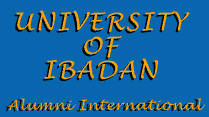|
In 1970, after eight years as a research section of
the Institute of African Studies, Archaeology became
a teaching department of the Faculty of Science. It
is presently the only Department of Archaeology in Nigeria.
Archaeology is available as a 13.Sc. and as a B.A. Single
Honours degree and may be taken as part of a combined
honours degree with other subjects including Geography,
Geology, Zoology, Botany, Arabic and Islamic Studies,
History, and Religious Studies. Subsidiary courses in
Archaeology, can also be taken by students in the Faculties
of Science, Arts, Social Sciences and Education. Students
intending to make a professional career in archaeology
can proceed to ~ higher degree after obtaining a B.Sc.
or B.A. The Department offers higher degrees in Archaeology
at the M.Sc., M.Phil. and Ph.D. levels and is presently
expanding its postgraduate programme. As at 1979/80,
there were seven postgraduate students�four Ph.D. and
the remaining three M.Sc. students. One of the three
is a graduate assistant.
A small group of research staff was built up in the
Institute of African Studies, and among its more important
excavations were those at Igbo-Ukwu (Anambra State),
Iwo Eleru (Ondo State), Daima (Bornu State), and rescue
archaeology in the area flooded by the building of the
Kainji Dam (Kwara and Niger States). All these members
of staff became lecturers in the new Department. Research
being presently conducted in the department covers a
wide geographical and chronological range. Research
projects are under way in the Oyo, Rivers, Anambra,
Benue and Plateau States of Nigeria and in the grassfields
region of the Cameroon republic. Topics cover many phases
of human development from the Early Stone Age to historical
times. Students of Archaeology are encouraged to participate
in fieldwork; those taking single or combined Honours
are required to take part in any ol the approved major
departmental excavations. Presently, these are going
on at Oyo Ile (Old Oyo), Shaki (Oyo State), Tse Dura
and Ushongo (Afikpo-Benue State).
Besides research on African pre-history and culture
history, members of staff are working on the application
of scientific techniques in archaeological contexts,
and also run a project in experimental archaeology.
With the kind co-operation and financial support of
the International Institute of Tropical Agriculture
and the Ford Foundation, an archaeological reserve has
been established to observe and record the decay of
a modern village, and set up experiments to gain information
on soil movement, preservation and other matters affecting
the Interpretation of excavated archaeological sites.
During Easter 1980, a training dig was conducted for
the benefit of first year students at the reserve.
An important part of the programme makes use of the
Department�s Palynology Laboratory and includes a field
programme designed to throw light on the past vegetational
and climatic history of Nigeria and, it is hoped, upon
early agricultural practices.
The Department is presently housed in the Institute
of African Studies and on the ground floor of our new
building complex which is near completion. The Department
envisages moving over completely to the new building
complex either just before the start of the 1980/81
session or in the course of the session.
The West African Journal of Archaeology is edited by
some members of stall in the Department.
|
